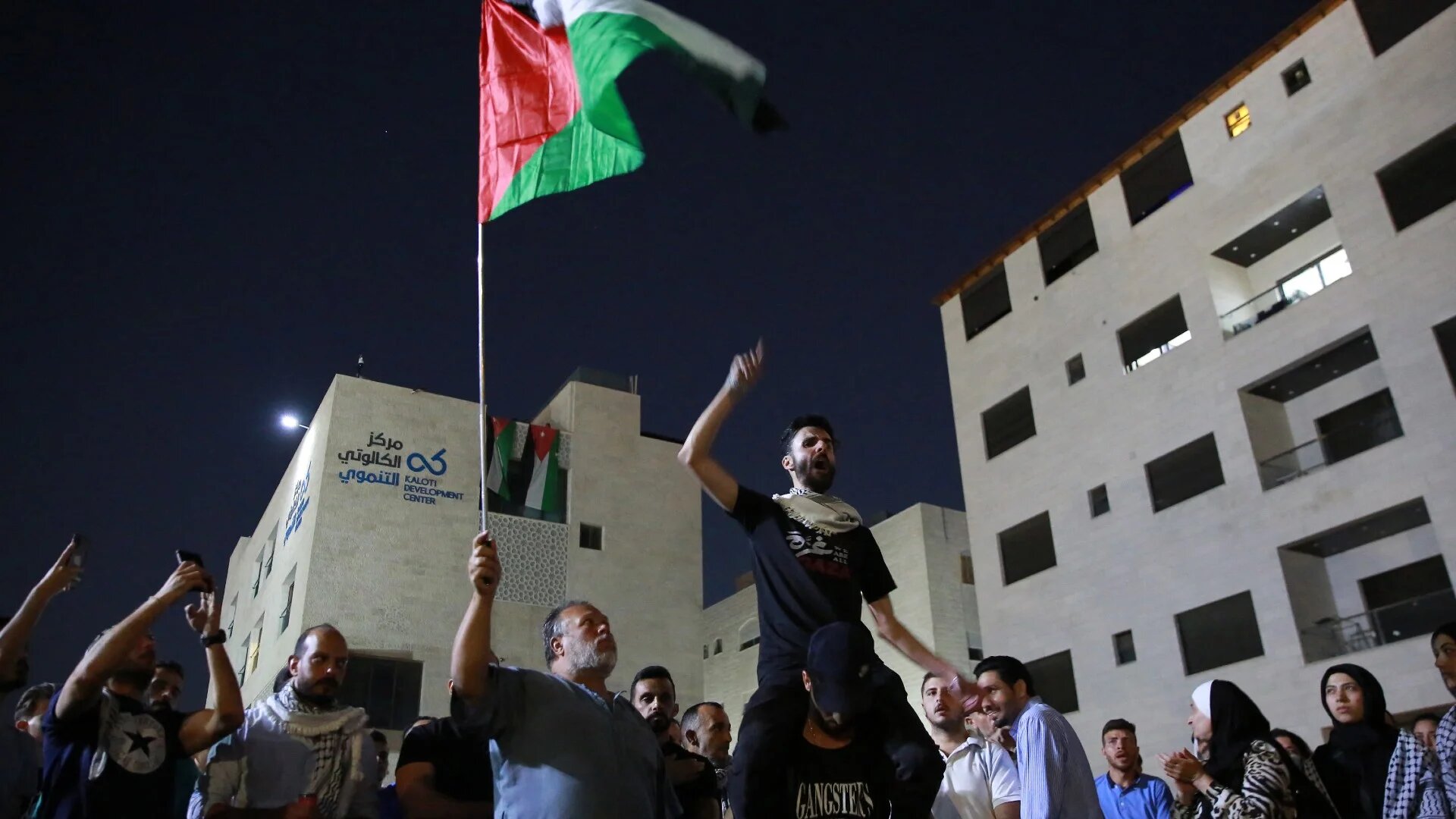Politics
Jordan Faces Internal Crisis Amid Solidarity Activism Crackdown

Jordan is experiencing rising tensions following a crackdown on solidarity activists, which sources indicate is inadvertently fueling an internal crisis. Reports have emerged of a concerted campaign by Jordan’s intelligence services, known as the Mukhabarat, leading to numerous arrests of activists, political opponents, and party leaders. This crackdown coincides with increasing instability in neighboring regions and deteriorating conditions for Palestinians, particularly in Gaza, where the situation has escalated dramatically.
On March 13, 2024, Jordanian authorities arrested prominent social media activist Ayman Aballi shortly after he criticized the government’s silence regarding Israel’s policies in Gaza. His arrest highlights a broader trend of suppression that has provoked significant backlash against the intelligence services. This unrest has been further exacerbated by the recent death of Ahmed al-Ibrahim, a young man who reportedly died in police custody following a severe beating during detention. His family claimed he was taken to a hospital multiple times while in custody at the Ramtha police station, located just 5 kilometers from the Syrian border. Al-Ibrahim’s death sparked protests in Ar-Ramtha, where demonstrators blocked roads and demanded accountability from the authorities.
On the same day as al-Ibrahim’s death, security forces detained a member of parliament from the Islamic Action Front (IAF) party over a critical Facebook post regarding the government’s stance on Israeli actions. The authorities also briefly detained Moaz al-Khawaldeh, a spokesman for the Muslim Brotherhood, before releasing him the following day. A Jordanian political analyst, speaking on condition of anonymity, stated that these actions are creating an “unprecedented wave of anger” within the streets of Jordan.
Growing Concerns for Stability
The political climate in Jordan is becoming increasingly precarious, particularly as external threats loom large. The analyst noted two significant risks: the potential collapse of the Syrian state and the possibility of Palestinian displacement from the West Bank into Jordan. This influx could alter the demographic fabric of the Hashemite Kingdom, raising concerns about internal stability.
Syria is currently facing renewed sectarian violence, which erupted following a petty crime involving a Bedouin gang and a Druze merchant. This incident has escalated into a series of retaliatory attacks, resulting in significant casualties. As Syrian security forces attempt to restore order, they have encountered fierce resistance from Druze fighters, leading to further instability. Amid this turmoil, Israel has reportedly targeted Syrian military positions, further complicating the region’s security dynamics.
As Jordan’s authorities intensify their crackdown on civil society, critics argue that the Mukhabarat is misallocating resources by focusing on activists instead of addressing the genuine threats posed by external forces. Reports indicate that the government has been under pressure to suppress dissent as part of an effort to secure financial assistance from regional allies, including Saudi Arabia and the United Arab Emirates.
Public Reaction and Historical Context
The crackdown has triggered widespread discontent, particularly regarding Jordan’s diplomatic relations with Israel. Since normalizing ties in 1994, Jordan has faced growing public backlash over its cooperation with Israel amid ongoing violence in Gaza, which has resulted in the deaths of at least 58,000 Palestinians, predominantly civilians.
Jordan’s historical relationship with the West Bank adds complexity to the current crisis. After occupying the area and East Jerusalem in 1948, Jordan annexed them in 1950, offering citizenship to Palestinians living there. Following the 1967 war, Jordan lost control of these territories to Israel, which has since encouraged settlement expansion in the West Bank. This ongoing occupation continues to fuel resentment among Jordanians, particularly as public anger mounts over Israel’s actions and the perceived inadequacy of the Jordanian government’s response.
Local protests have intensified, with various groups organizing sit-ins and demonstrations to demand the release of detained activists, such as Ahmed al-Zarqan, a former mayor and deputy head of the Muslim Brotherhood. Detained since April 2024, al-Zarqan has yet to face charges or be allowed legal representation, further inflaming public outrage.
As Jordan grapples with these internal challenges, the situation remains volatile, with potential implications for regional stability. The government’s ability to navigate this crisis while addressing both internal dissent and external threats will be crucial for its future.
-

 Health3 months ago
Health3 months agoNeurologist Warns Excessive Use of Supplements Can Harm Brain
-

 Health4 months ago
Health4 months agoFiona Phillips’ Husband Shares Heartfelt Update on Her Alzheimer’s Journey
-

 Science2 months ago
Science2 months agoBrian Cox Addresses Claims of Alien Probe in 3I/ATLAS Discovery
-

 Science2 months ago
Science2 months agoNASA Investigates Unusual Comet 3I/ATLAS; New Findings Emerge
-

 Science2 months ago
Science2 months agoScientists Examine 3I/ATLAS: Alien Artifact or Cosmic Oddity?
-

 Entertainment2 months ago
Entertainment2 months agoLewis Cope Addresses Accusations of Dance Training Advantage
-

 Entertainment5 months ago
Entertainment5 months agoKerry Katona Discusses Future Baby Plans and Brian McFadden’s Wedding
-

 Science2 months ago
Science2 months agoNASA Investigates Speedy Object 3I/ATLAS, Sparking Speculation
-

 Entertainment5 months ago
Entertainment5 months agoEmmerdale Faces Tension as Dylan and April’s Lives Hang in the Balance
-

 World3 months ago
World3 months agoCole Palmer’s Cryptic Message to Kobbie Mainoo Following Loan Talks
-

 World4 weeks ago
World4 weeks agoBailey and Rebecca Announce Heartbreaking Split After MAFS Reunion
-

 Science2 months ago
Science2 months agoNASA Scientists Explore Origins of 3I/ATLAS, a Fast-Moving Visitor









